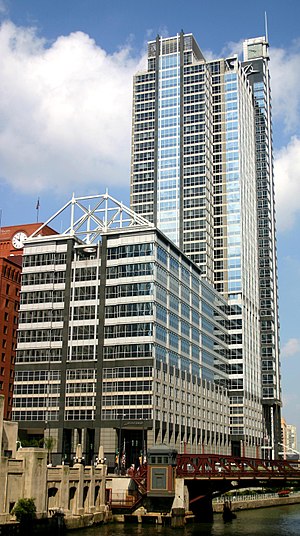 Image via Wikipedia
Image via Wikipedia
Boeing Ethical Conduct
Important and noteworthy guidelines worth emulating are that of the mammoth Boeing Company that is a global leader in aerodynamics and space exploration. The company’s ethical business conduct guidelines include commitment to leadership, integrity, quality, customer satisfaction, and people working together, a diverse and involved team, good corporate citizenship, and enhancing shareholder value (Boeing, 2011). Arguably, four guidelines that are of relevant importance in the implementation of organizational change would be integrity, customer satisfaction, quality, and a diverse and involved team. Workforce diversity is an issue that focuses on people and their differences and similarities and what they bring to organizations (Woods, Bormann, & Schmidle, 2010).
Ethical Guidelines
These days, upholding higher degree of integrity has become the hallmark of many successful conglomerations in modern businesses ethics. Integrity which implies truthfulness, truth, veracity, or honesty is the most important tool employer and employees need to be equipped with to construct a credible foundation for any business. In my opinion, quality is another important and outstanding trait that has been credited with solidifying corporate business operations. In the case of Boeing, quality epitomizes improving work performance to achieve customer, employee, and community satisfaction.
In modern business practices, the term customer satisfaction has become a significant philosophical, psychological, or ideological tool and a rallying cry for most business entities, national and international, whose significance is nothing other than attracting consumers to the array of products earmarked for retail or wholesale by producers who are in firm competition for market domination. It has become an observable fact and a widely acclaimed, universal belief that any organization that fails to fulfill the needs of its customers is doomed to fail miserably. In relative terms, the term customer satisfaction signifies business-customer consanguinity, buyer-seller attachment, or giver-taker affiliation.
The sudden increase in global demographic protuberances, political irredentism, social equality, and economic emancipation experienced by humanity in the last few decades has given rise to explosive technological advances, enhanced globalization, and human interaction consequently leading to the elevation of integrated teamwork and inflexible workforce diversity never before seen in human history. In modern times, upsurge in unregulated human migratory patterns have set the stage for teamwork and workforce diversity. Likewise, diversity and teamwork have been making great strides in spurring spontaneous proliferation of global industrial production on a large scale. Thus, teamwork and workforce diversity are of paramount importance if organizational success is to be achieved. However, it should be noted that fruitful results can only be accomplished with strenuous training and regulatory enforcement.
Leadership Style
Two important ethical guidelines I tend to exemplify and intend to unleash in the near and distant future leadership role for effecting organizational change are competence and integrity and confidentiality. With competence an organization is required to have a solid trained workforce that has a firm understanding of the required roles and obligations. Employees will have to perform exceptionally well in the performance of their duties and also avoid making misleading statements that may hurt the organization and client good standing. According to Lamar (2000), confidentiality entails keeping the identity of clients secret especially records, information, and identity. I will expect each and every employee to observe confidentiality as being sacrosanct and inviolable. Since I consider myself a committed and loyal servant who has all the values and ideals of his organization at heart, assisting another leader in evil deeds is my greatest challenge and fear. I am not willing to take risks by contravening the rules and regulations of my organization.
References
Boeing (2011). Ethical business conduct guidelines. Retrieved from http://boeing.com/companyoffices/aboutus/ethics/ethics_booklet.pdf
Lamar (2000). Ethical guidelines for educational developers. Retrieved from http://lamar.colostate.edu/~ckfgill/ethics1.htm
Woods S., Bormann, T. & Schmidle J. (2010). Introduction: Workplace diversity. Retrieved from http://www.ilr.cornell.edu/library/research/subjectguides/workplacediversity.html



